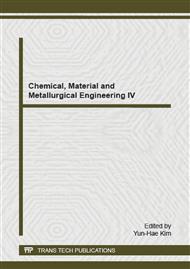p.360
p.365
p.369
p.374
p.381
p.385
p.389
p.393
p.397
Experimental Study of a Lead-Zinc Sulfide Comprehensive Recovery
Abstract:
A refractory lead-zinc sulfide was studied in this experiment, at which the effect of use of new zinc activator L-23 and a traditional zinc activator copper sulfate are compared. It’s drawn from the results, with use of a new activator L-23, the grade and recovery of zinc concentrate have a significantly increase, and attained a good indicator that the zinc concentrate grade is 43.77%, recovery is 79.62%.
Info:
Periodical:
Pages:
381-384
DOI:
Citation:
Online since:
March 2015
Authors:
Keywords:
Price:
Сopyright:
© 2015 Trans Tech Publications Ltd. All Rights Reserved
Share:
Citation:


